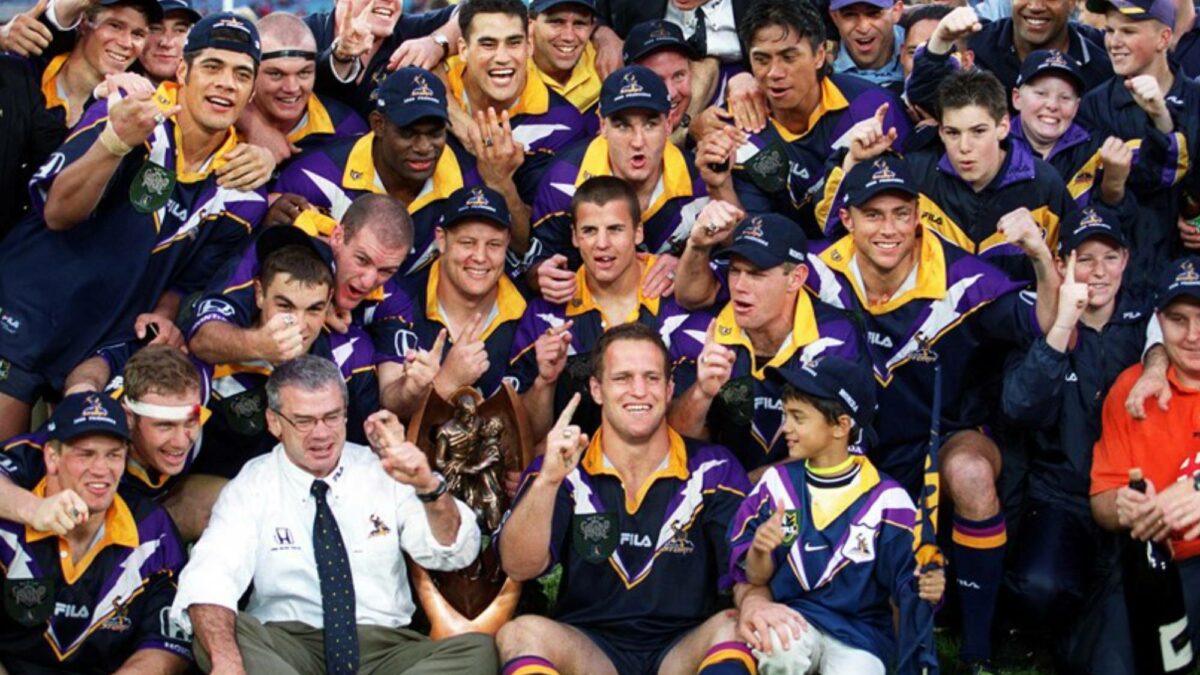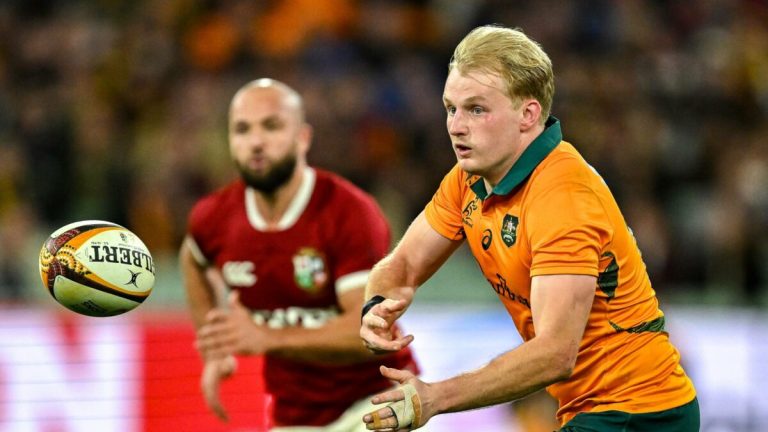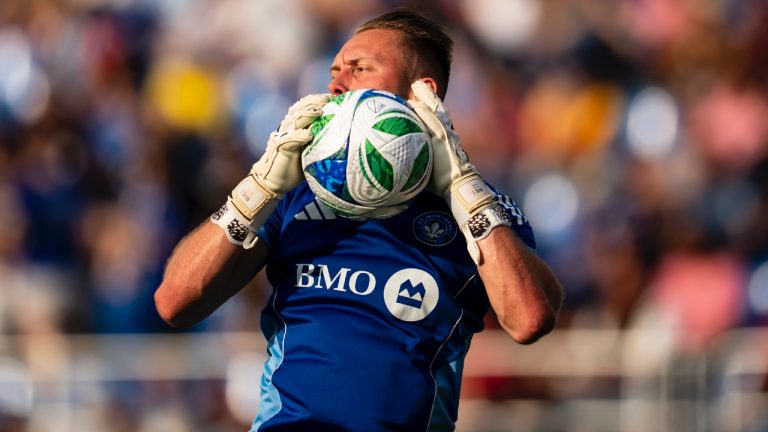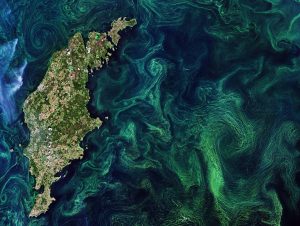The great grand finals are those that cause the greatest joy and therefore the greatest pain.
The 1999 grand final, the second of the NRL era, between the newly formed joint venture St George Illawarra and the foreign interloper Melbourne Storm in only their second season, is certainly one of those.
Melbourne returned from the dead to record the biggest grand final comeback, a margin that was eventually usurped by Penrith under similar circumstances in 2023, the subject of my previous article.
Interestingly, despite its status and the fact it was performed in front of a deafening world record crowd in a stadium preparing itself for the upcoming Olympics, it was at times a rather poor game, riddled with errors on the slippery long-grassed surface.
Also, watching it now in the modern era of highly structured defence and unprecedented power and athleticism brought to the game by Maori and Pacific Islander players, it’s a little underwhelming.
Not to mention the over-sized wide shouldered jerseys of the time, and those horrifically transparent white nylon shorts (the wash instruction labels clearly visible) worn by the Dragons players.
Let’s begin with the pain.
The player who will always be remembered in this match is the divisive and compelling figure of Anthony Mundine, the Dragons five-eighth who has, rightly or wrongly, shouldered the pain for his team’s loss.
Michael Ennis explained that a grand final loss “seeps into the soul” so you can imagine the impact on a player who is seen to have blown his and his teammates’ chance for glory.
Even while well established in a successful boxing career, Mundine was still searching for redemption almost as if his bouts were only ever about rectifying THAT blunder in the 51st minute.
After his error, things began to falter for the red and white, and the Storm snatched it in the dying minutes with a penalty try.

Anthony Mundine. (Photo by Nick Wilson/Getty Images)
Contemplating a return to the game he remarked: “It still haunts me … I want to win a premiership to help erase those memories”.
Despite the unparalleled success in their earlier golden era, St George hadn’t won a title for 20 years, and had lost their past four grand finals. Illawarra had never experienced a premiership.
Although only finishing sixth,the Dragons cruised through the finals by thumping the Storm in the qualifying final and minor premiers Cronulla in the preliminary final to enter the grand final as raging favourites.
The Storm recovered and showed immense character to take both the semi and preliminary finals by a mere two points.
Up to half-time things are going as expected. The Dragons, using their running game and ball movement, have scored two converted tries and a penalty goal to lead 14-0.
As the players walk off, caller Ray Warren confidently trumpets: “St George as a single entity have won 15 premierships. They are 40 minutes away from premiership 16.”
In the race, Storm lock Tawera Nikau grabs his teammate Stephen Kearney by the collar and says: “We’ve just got to rip in and knock their heads off in the second half.”
From the first set of the second half, Nikau backs up his words with actions; his aggressive defence and hit-ups making him and eventual Clive Churchill Medal winner Brett Kimmorley, the players most responsible for the game turning.
Kimmorley then wears a high shot by prop Craig Smith 20 metres from the Dragons’ line.
Immediately there is a change in the tone. Smith and his teammates look genuinely unsettled at the opposition’s response and the penalty. Booing fills the stadium when Smith is placed on report.
The commentators are giving accounts of the coaches’ half-time addresses and it’s significant, considering what is to occur shortly, that Dragons coach David Waite warns his team about the kicking threat of Kimmorley.
Then comes the 51st minute. On the fifth tackle Mundine, who has been lively and threatening throughout the match, chases his own kick ten metres from the try line. The ball ricochets off a sliding Kimmorley and falling Shaun Timmins into his path and he scoops it up.
There is a sizeable gap between the grounded Kimmorley on the right and Storm winger Craig Smith on the left, who has had to leave his man Jamie Ainscough and shift across to defend the line.
Mundine moves to the left with the unmarked Darren Treacy and Ainscough on his outside but, imbued with the instinct for glory, The Man straightens off his left foot and dips for the line. Smith has retained his position and braces for the tackle.
Mundine has both hands on the ball and his head passes under Smith’s arm, brushing it slightly, but his left shoulder then impacts Smith’s hip and thigh wrenching his left hand off the ball. The right hand is unable to remain attached for the put-down and he loses the ball over the tryline.
Mundine knows he hasn’t scored. He lies there blinking as if waking from a light filled heroic dream to find himself in a black mould windowless bedsit.
As he walks back in disbelief, Timmins can be seen behind mouthing an obscenity and he has a scowling Ainscough remonstrating with him.
It’s not a good look. They are still up by 12 points but appear to be unraveling, fearful of Melbourne’s ability to finish games.
The penalty try in the 75th minute is probably the most watched moment in the history of the game and has been immortalised by the words of Warren: “I think you’ll find that (referee) Bill Harrigan is about to make one of the biggest calls in 100 years of rugby league.”
There is an interesting end-note that illustrates the profound impact a grand final result can have on the life of players. In a strange quirk of fate the two Storm wingers from the game, Marcus Bai and the man knocked out scoring the penalty try, Craig Smith, both had their premiership rings stolen in different incidents.
On getting his ring remade and engraved by a thoughtful jeweler, Smith had this to say: “It’s everything. It’s a big piece of me that has been missing for a long time. I think over time since playing this great sport if I was at a low point I’d slip it on. It’s part of what I did … It’s something only footballers understand.”
For the Sydney clubs, I think there was the expectation that this premiership by a Melbourne ring-in was going to be a one-off in their game’s history. It was Glenn Lazarus’s final game and quite a few players would shortly leave, as would coach Chris Anderson.
But soon there will be the arrival of an untested senior coach by the name of Craig Bellamy who will continue the legacy of the Melbourne Storm experiment, spawning one of the great chapters – 23 years long and still being written – in the story of Australian sport.






